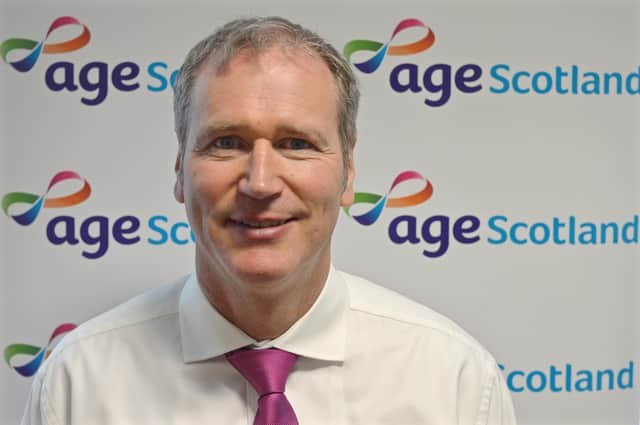Tackling ageism is key in making Scotland the best place in the world to grow older - Brian Sloan


Most of us would never think of using racist or sexist language in the workplace. But ageism is often viewed as less serious, with older people frequently the butt of jokes or “affectionate” teasing.
Even phrases that appear complimentary – such as addressing someone as “young lady” – reflect our collective fear of ageing.
Advertisement
Hide AdAdvertisement
Hide AdIn many ways, this has been thrown into sharp focus over the last year. Even the most fit and active 70-somethings have realised their vulnerability to a deadly virus, which unfortunately does discriminate on the basis of age.
The effort across the generations to reach out to those most vulnerable to Covid-19 has been heartening. But it has also highlighted a tendency to view older people as helpless victims and overlook the huge contribution they still make to society. Age Scotland’s latest research paints a worrying picture of how many older people feel they are perceived.
We surveyed more than 3000 people, over 50 years of age, across Scotland as part of our Big Survey between January and March this year. We were shocked to find that more than a third of respondents (36 per cent) felt they were made to feel a burden to society, while almost as many (34 per cent) said that life was getting worse for older people in Scotland.
Overall, only one in five (21 per cent) of all respondents felt optimistic about their future.
Our survey also highlighted widespread age discrimination in the workplace. Twelve per cent said they had been discriminated against at work, while six per cent had witnessed discrimination against older colleagues.
This is especially concerning given the impact of the pandemic on older workers. While much of the focus has been at the opposite end of the age spectrum, older employees have been among those most impacted.
Recent research by the Institute of Fiscal Studies and the Centre for Ageing Better found that workers over 65 were 40 per cent more likely to be furloughed in late April than those in their 40s. And previous studies suggest that those in their late 50s are less likely to bounce back quickly from a period of unemployment than younger counterparts.
As the furlough scheme comes to an end, this could mean a sharp rise in older jobseekers, while others feel forced to take retirement earlier than they had planned.
Advertisement
Hide AdAdvertisement
Hide AdThis doesn’t only affect an individual’s finances, mental health and self-esteem. We all lose out when we don’t value older people’s skills and experience.
In fact, having a mix of generations in the workplace has been shown to benefit all age groups, with younger workers learning from older mentors.
Outside work, those in later life still make a huge contribution to society, whether through volunteering or caring for grandchildren or other relatives. Far from being victims, older people have led efforts across Scotland to reach out to those most at risk over the last year.
As we look towards a recovery, it’s vital that everyone, no matter their age, feels valued and can play a full part in society. Tackling ageism is a key part of making Scotland the best place in the world to grow older.
Brian Sloan, Chief Executive at Age Scotland.
Comments
Want to join the conversation? Please or to comment on this article.